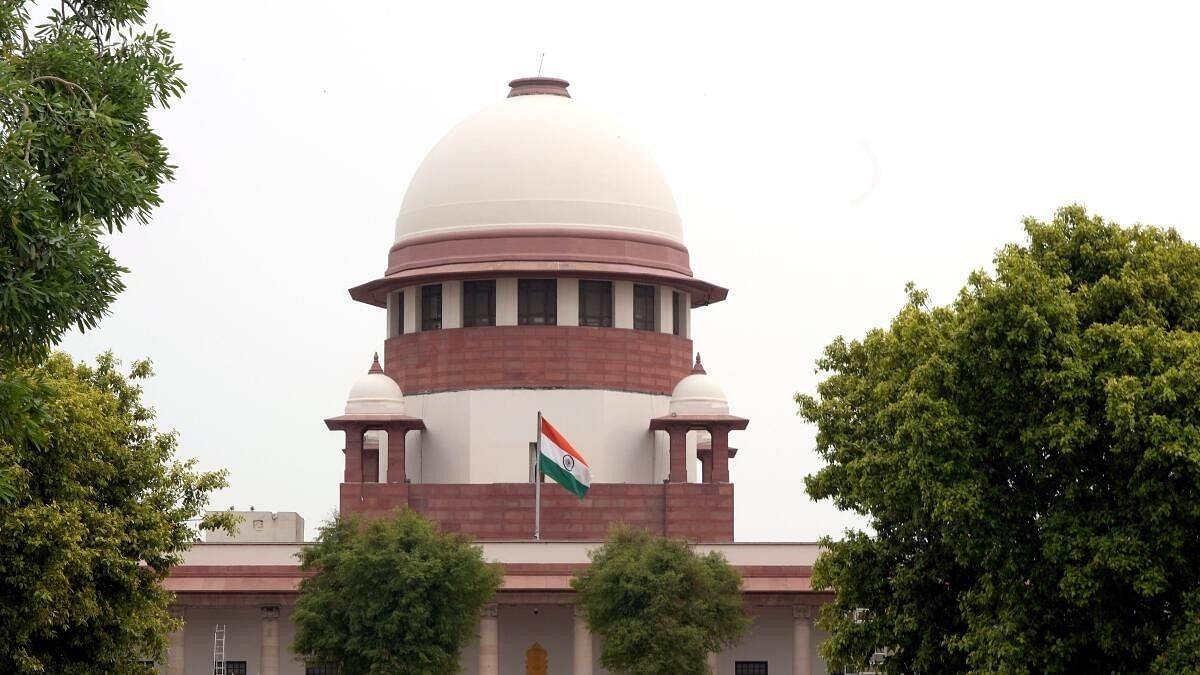
The Supreme Court of India.
Credit: PTI File Photo
New Delhi: The Supreme Court has said there cannot be a moral conviction in a case as brutality of the offence does not dispense with the legal requirement of proof beyond a reasonable doubt and the courts can convict an accused only on the basis of legally admissible evidence.
A bench of Justices Abhay S Oka, Ahsanuddin Amanullah and Augustine George Masih acquitted Randeep Singh alias Rana and another accused in an abduction-cum-murder case by setting aside the Punjab and Haryana High Court's judgment which upheld their conviction and sentence of life term by an Ambala court.
The state counsel defended the concurrent findings also contending that it was a case of gruesome murder.
"It is true that this is a case of a brutal murder. The brutality of the offence does not dispense with the legal requirement of proof beyond a reasonable doubt. In this case, there is no legal evidence to prove the involvement of the accused. The courts can convict an accused only if his guilt is proved beyond a reasonable doubt on the basis of legally admissible evidence. There cannot be a moral conviction," the bench said in its judgment on November 22.
The court here disbelieved the testimony of Paramjeet Kaur, sister of the deceased, who claims to be an eyewitness, discarded the evidence of the CD of the alleged CCTV footage and also found that another eyewitness, her husband though available, has not been examined.
"It is not possible to sustain the conviction of the accused only based on the evidence of recovery. Moreover, all the circumstances forming part of the chain have not been proved," the bench said.
The court noted the testimony of alleged eyewitness, sister of the deceased was full of omissions.
The case was related to abduction and murder of Gurpal Singh on July 8, 2013, his torso was found next day in a canal. His sister claimed that the deceased who came to meet her, was abducted by the accused in a car after taking away his vehicle.
The court noted the identification of the accused by the sister is very doubtful in the absence of the test identification parade.
On CCTV footage, the court said, the CD did not bear any marking or sign from either of the witnesses.
"Most importantly, the prosecution failed to produce the certificate under Section 65B of the Evidence Act. Therefore, the evidence in the form of the CD will have to be kept out of consideration as it is not admissible," the bench said.
The court also pointed out assuming that the CCTV footage was admissible, the trial judge and the judges of the High Court did not see the CCTV footage, still, the courts relied upon it.
On confessions and recovery, the bench said, there is a complete prohibition on even proving such confessions made before the police.
The trial judge here has completely lost sight of Sections 25 and 26 of the Evidence Act and has allowed the investigating officer to prove the confessions allegedly made by the accused while they were in police custody.
"The trial judge should not have recorded an inadmissible confession in the deposition. A confessional statement made by the accused to a police officer while in custody is not admissible in the evidence except to the extent to which Section 27 is applicable. If such inadmissible confessions are made part of the depositions of the prosecution witnesses, then there is every possibility that the trial courts may get influenced by it," the bench said.
